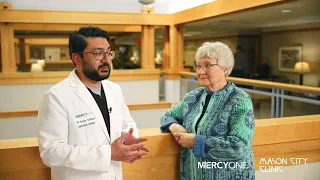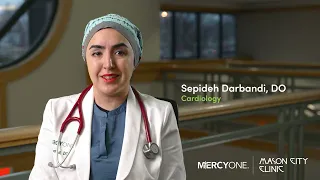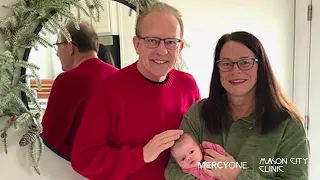View Transcript
The symptoms I began with, started after my diagnosis with multiple myeloma, which is a blood dyscrasia. And it seemed like the side effects I was having, after starting chemo, was with my heart. Since that time, as progression went on and I had more chemo, the symptoms became harsher and faster. And that’s when I started getting new tests done. Which surprised me, because there was nothing in the family that associated heart problems. Sid did a echocardiogram that started the heart valve problems and it just got progressively worse. When I went to see Dr. Siddiqui, he said that a valve replacement would be the route that we would go. So, this was a new thing that I would say, “Okay, I can handle that,” just going through the groin to get to the heart, to get the valve replaced.
Oh, what a difference. What a difference the post–surgery was. I was able to walk without having the chest pain that just didn’t seem to go away. The elimination of atrial fib was gone. And I was out in the garden, two days later, digging my plants out and replacing them. And thinking, “That didn’t belong there, but it belonged here.” So my creative juices were really flowing. I feel great. I feel like I’ve had a second lease on life.
Video Summary
Rosalyn had severe chest pain and it was getting worse. Dr. Fayez Siddiqui, an interventional cardiologist at Mason City Clinic, recommended a new heart valve procedure for Rosalyn. The procedure is called Transcatheter Aortic Valve Replacement (TAVR). It is a minimally invasive surgery. The surgery helped Rosalyn feel better. Now, she is back in her garden with more energy.
Heart valve replacement or repair can be very successful. Surgical advancements have made it possible to accurately identify the location, type, and severity of valve disease. This helps doctors determine the best course of treatment for each individual patient.
For more information on heart valve surgery at Mason City Clinic.
 Dr. Siddiqui & Rosalyn – Aortic Stenosis
Dr. Siddiqui & Rosalyn – Aortic Stenosis
 Mason City Clinic Cardiologist Talks About Risks of Heart Disease in Women
Mason City Clinic Cardiologist Talks About Risks of Heart Disease in Women
 Triple Bypass Surgery Has This Mason City Man Grateful
Triple Bypass Surgery Has This Mason City Man Grateful